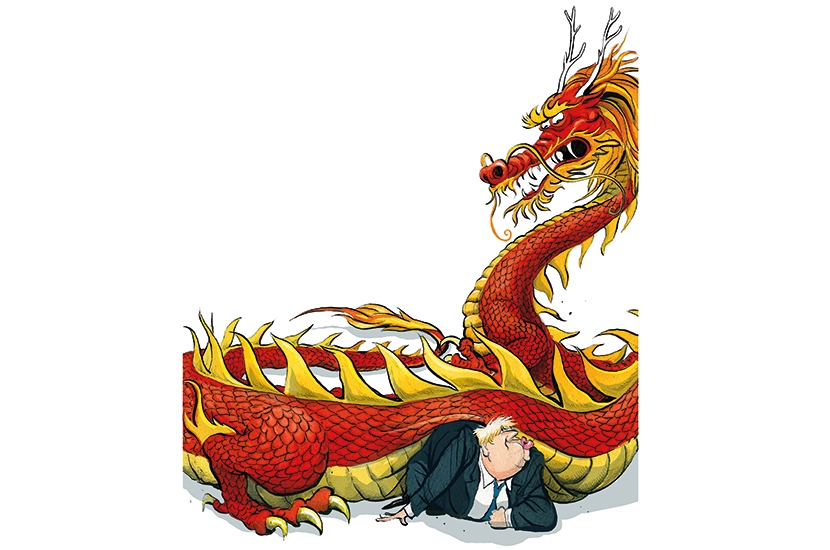Death and disruption breed anger. A lot of people are now looking for someone to blame for the pandemic and China is an obvious target. It has a leadership which is authoritarian at home and menacing abroad. Its human rights record is deplorable. Western memories still encompass the invasion of Tibet. Today, its wet markets offend Western sensibilities – they sound like a cruel and unhygienic way of threatening endangered species. Above all, there is Wuhan.
Many people are now convinced that something went wrong in a biological research laboratory and that the wet markets may well have given a further impetus to the spreading virus. If the Chinese had been honest about this virus from the outset, western countries could have taken action earlier so there would have been fewer deaths and less economic damage. Instead, the Chinese leadership seems to have concentrated its energies on muzzling the likes of Dr Li: who tried to warn the world, was visited by the police, and then died, young.
So the anger is neither surprising nor unjustified. As an expression of this, some British politicians have called for a re-think about economic relations with China, including ties with Huawei. Now the government has announced the company will be banned from Britain’s 5G network. In the US, president Trump and Joe Biden are trying to out-do one another in anti-Chinese rhetoric. They both sound as if they want to treat China as a pariah state. All this is understandable, but is it wise?
Two points should be obvious. First, anyone who expected better behaviour from the Chinese leadership was, well, what is a strong word for naive? Coronavirus and the alleged cover-up has taught us nothing about the Chinese communist party which we should not already have known.
It is difficult for all governments to admit mistakes. Our own one would have been better advised to do a little more of that over the virus. It is much harder for an autocracy, where everything centres on the great leader who is not able to hide behind mediating political and governmental structures. As he is infallible, he must not be seen to fail. In China, this is exacerbated by ‘face’. Any Westerner who assumes that this is merely a comical cliché is making a grave mistake. In China, it matters. Mr Xi cannot allow himself to lose face and with it, authority.
Second, however badly the CCP has behaved, there is no reason to abandon the principal goal of Western policy. That still ought to be the gradual incorporation – indeed, the seduction – of China into an international order based on free trade, common legal norms and collective security. The difficulties in bringing that about are self-evident. That makes it all the more important to persevere.
Churchill described Russia as ‘a riddle wrapped in a mystery inside an enigma.’ That applies even more strongly to China. So how should we respond, both in the short-term and over time?
First, over Huawei, the debate has nothing to do with coronavirus. If it was the right decision before the virus to allow the company to operate in Britain, it still is.
Second, we should accept that moral spasms are of limited utility and may be no more than self-indulgence. Long before coronavirus, there were plenty of reasons to take a high moral tone with the Chinese. When it comes to ranking the evils which bestial regimes have inflicted on humanity, Mao and the Cultural Revolution are near the top. Richard Nixon could never have been accused of being soft on communism, or on anything else. Yet in 1972, he visited China to begin a process of pragmatic engagement. Even before that, he had written: ‘Taking the long view, we simply cannot afford to leave China forever outside the family of nations, there to nurture its fantasies, cherish its hates and threaten its neighbours.’ This was surely the right approach.
And what about the plight of the Uighurs? If we wanted to draw up a charge-sheet of China’s crimes, we do not need any coronavirus cover-up to make up the numbers. So how do we proceed? Skilful diplomatic footwork will be needed to avoid the twin dangers: a total breakdown in relations, or a damaging impression of weakness.
We do not always have to hold our tongue. The Prime Minister of Australia is to be congratulated for standing up to the Chinese government, who are one of Australia’s major trading partners.
Back in the 1990s, when he was Governor of Hong Kong, Chris Patten stood firm under a barrage of abuse from China. ‘The whore of the East’ was probably the most memorably and amusingly lurid insult hurled at him. Well, his arrangements survived for over 20 years and are not done for yet.
Equally, post-1997, his own personal dealings with senior Chinese officialdom have remained amicable. When David Cameron was leader of the opposition, he decided to see the Dalai Lama, and informed the then Chinese ambassador, who was furious. Cameron was told that he would never be received in China and that Britain’s diplomatic and trading thinks would suffer. None of that happened. So we can firmly refuse to kowtow.
But where possible, we should proceed with patience and caution, recognising that there are neither instant cures nor general rules. Our grievances with China’s government need to be handled on a case-by-case basis, and megaphone diplomacy is rarely useful.






Comments